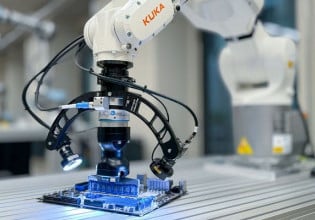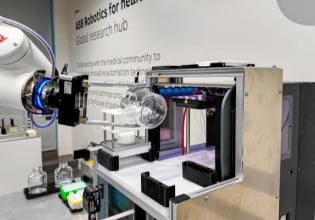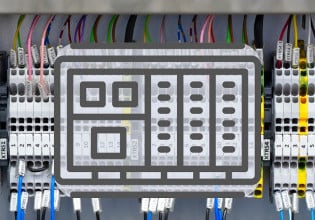B
Bill Code
See replies below:
-----Original Message-----
From: Edelhard Becker <[email protected]>
>Hi together,
>
>i think i have to add my $0.02 here ..
>
>On Fri, Apr 14, 2000 at 09:12:43PM -0400, Phil Covington wrote:
>> ----- Original Message -----
>> From: "Armin Steinhoff" <[email protected]>
>>
>> > I'm not convienced ... IMHO a clean implementation for a UNIX
>> > system work more reliable than any Windows based implementations.
>>
>> What evidence do you have that Windows based implementations are not
>> reliable? My first hand experience says that you are wrong...
>
>don't know where you got your experience, but i never found a reliable
>Windows machine. In contrary: which family of Operating Systems is
>famous for its "Blue Screen of Death"? And which one for running large
>scale servers?
I find the above statement unbelievable. My company builds machine and process control systems comprising integrations of PC and PLCs.
The PCs all run NT 4.0. Normally run 24/7. Two classes of apps in each system MMI (CiTect or Winderware) and raw material optimization.
>Windows (including 2000) is _by_design_ a Desktop-OS for Personal
>Computers, which means: switch the PC on, do some calculations in
>Excel, write a letter, print it and switch the PC off again. Unix is a
>multi-user, multi-tasking OS, which means: run the OS endlessly and
>serve as many users and as many processes as the system allows
>(depending on CPU power and memory size). Therefore it has a
>completely different design.
I don't agree that the above is usage model of industrial apps. In my office I use it daily for 8-10 hours or more. In the mills the stuff runs 24/7.
>At the University, we had SGI IRIX, HP-UX and Linux Systems and all of
>them run day and night for months without rebooting (usually until the
>building's electricians test the power system and simply shut off the
>mains :-/
They don't have a monopoly on reliability.
<remainder clipped>
-----Original Message-----
From: Edelhard Becker <[email protected]>
>Hi together,
>
>i think i have to add my $0.02 here ..
>
>On Fri, Apr 14, 2000 at 09:12:43PM -0400, Phil Covington wrote:
>> ----- Original Message -----
>> From: "Armin Steinhoff" <[email protected]>
>>
>> > I'm not convienced ... IMHO a clean implementation for a UNIX
>> > system work more reliable than any Windows based implementations.
>>
>> What evidence do you have that Windows based implementations are not
>> reliable? My first hand experience says that you are wrong...
>
>don't know where you got your experience, but i never found a reliable
>Windows machine. In contrary: which family of Operating Systems is
>famous for its "Blue Screen of Death"? And which one for running large
>scale servers?
I find the above statement unbelievable. My company builds machine and process control systems comprising integrations of PC and PLCs.
The PCs all run NT 4.0. Normally run 24/7. Two classes of apps in each system MMI (CiTect or Winderware) and raw material optimization.
>Windows (including 2000) is _by_design_ a Desktop-OS for Personal
>Computers, which means: switch the PC on, do some calculations in
>Excel, write a letter, print it and switch the PC off again. Unix is a
>multi-user, multi-tasking OS, which means: run the OS endlessly and
>serve as many users and as many processes as the system allows
>(depending on CPU power and memory size). Therefore it has a
>completely different design.
I don't agree that the above is usage model of industrial apps. In my office I use it daily for 8-10 hours or more. In the mills the stuff runs 24/7.
>At the University, we had SGI IRIX, HP-UX and Linux Systems and all of
>them run day and night for months without rebooting (usually until the
>building's electricians test the power system and simply shut off the
>mains :-/
They don't have a monopoly on reliability.
<remainder clipped>






